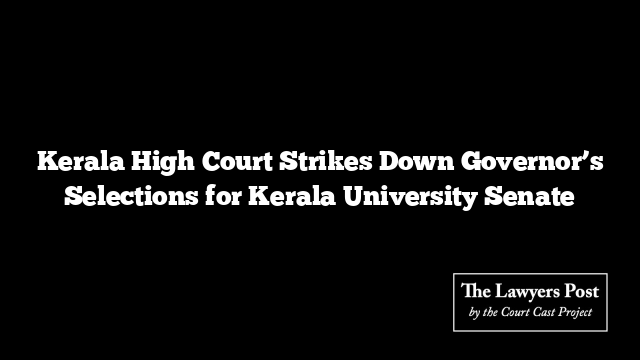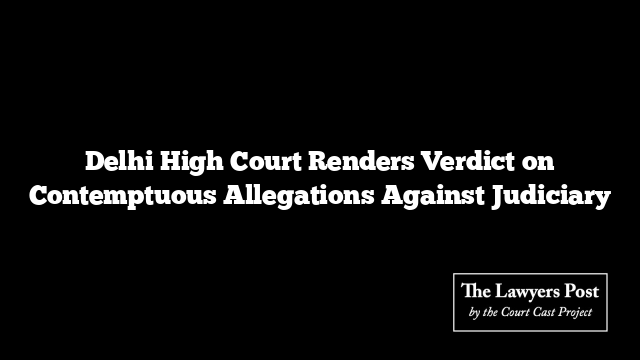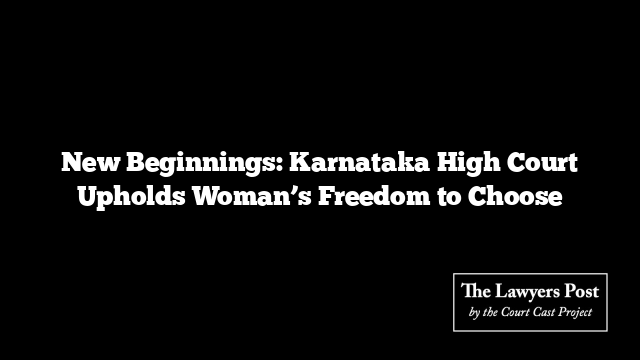In a recent judicial decision that reverberated through the corridors of academic power, the Kerala High Court wielded its authority, nullifying the student nominations tendered by Kerala’s Governor, Arif Mohammed Khan, to the esteemed Senate of Kerala University.
The court’s ruling, stemming from the case of Arunima Ashok and others versus The Chancellor, University of Kerala, delivered on May 21, not only annulled the nominations but also meticulously delineated the bounds of the Chancellor’s influence in such appointments.
According to Justice Mohammed Nias CP, who presided over the case, the nominations in question fell short of meeting the statutory prerequisites. The judgment resounded with a resolute declaration that the Chancellor’s authority in this context is not boundless.
“Unbridled power,” the court pronounced, “has no place in the exercise of such nominations.”
Constitutional courts, the judgment iterated, retain the prerogative to intervene when nominations deviate from statutory mandates, emphasizing the importance of adherence to legal stipulations.
The court’s directive, compelling the Chancellor to initiate fresh nominations within six weeks, underscored its commitment to upholding statutory integrity.
At the heart of the dispute lay Governor Arif Khan’s 2023 selection of Abhishek D Nair, Dhruvin SL, Malavika Udayan, and Sudhi Sadan for the Senate. Allegations surfaced suggesting affiliations with the Akhil Bharatiya Vidyarthi Parishad (ABVP), casting a shadow of doubt over the impartiality of the selections.
Petitions filed by aggrieved students, claiming superior credentials over the nominees, challenged the validity of the appointments. These students, rank-holders in their own right, decried the alleged oversight in considering their qualifications.
During proceedings, the Chancellor’s defense contended that no specific procedural norms governed the nominations, while also cautioning against equating academic prowess solely with ranking.
However, the court, while acknowledging the multifaceted nature of academic merit, faulted the Chancellor for overlooking the petitioners’ qualifications entirely, highlighting a breach in procedural fairness.
“Rank holders,” the court asserted, “merit due consideration in nominations,” admonishing against arbitrary exercise of discretionary powers that contravene constitutional principles of equality and non-discrimination.
In a parallel development, the court dismissed a writ petition challenging the nomination of Muralidharan Pillai, Dr. Shiju Khan JS, and R Rajesh to the Senate. Despite pending criminal cases against some nominees, the court deemed their experience sufficient, thus rebuffing claims of inadequacy.
The legal fray, underscored by a constellation of legal luminaries representing diverse interests, exemplified the complex interplay between statutory mandates and institutional prerogatives.
As the gavel fell on this judicial saga, the reverberations echoed a poignant reminder of the enduring vigilance required to uphold the sanctity of academic governance.





